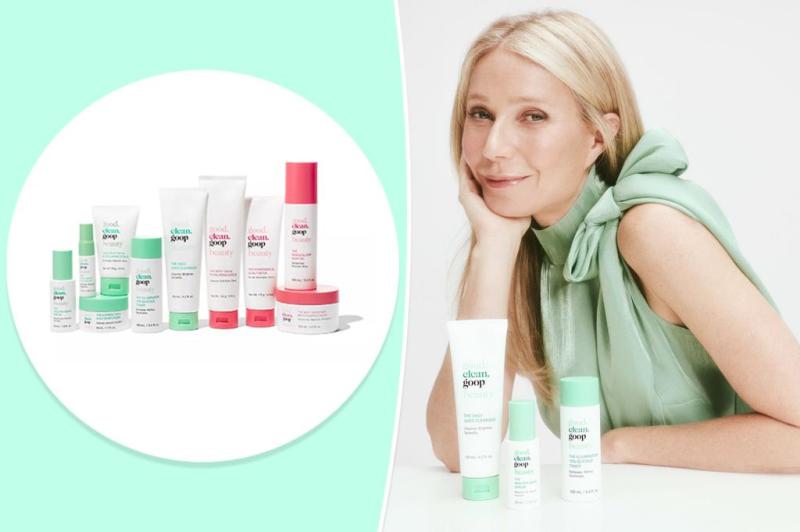Goop’s Evolution: Can Gwyneth Paltrow’s Wellness Empire Weather the Luxury Storm?
Share
When Gwyneth Paltrow launched Goop, it didn’t just land on the scene—it set the internet on fire. The brand embodied aspirational luxury and wellness, blending jade eggs, clean beauty, and a sprinkle of celebrity stardust into an undeniable cultural phenomenon. But in 2024, Goop finds itself at a crossroads, forced to redefine its place in a hyper-competitive luxury market.
With an 18% reduction in its workforce and a pivot toward its beauty and core product lines, Goop isn’t just trimming the fat—it’s rethinking its DNA. This comes as the once-revolutionary lifestyle brand faces a new world of competition where wellness is mainstream, and exclusivity isn’t always the golden ticket – unless you’re in regenerative skincare.
The Accessibility Gamble: Can Luxury Be Democratic?
In late 2023, Goop launched Good.clean.goop—a lineup of beauty products priced under $40, available at mass-market retailers like Target and Amazon. This affordable line marks a significant shift in the brand’s approach to accessibility within the luxury wellness space.

There’s no doubt the clean beauty boom is a cash cow—Goop’s beauty division reportedly grew by 40% in the past year—but introducing affordability to the mix walks a tightrope. Brands like Chanel and Hermès have thrived by keeping their offerings aspirational, maintaining an air of unattainable exclusivity. By contrast, Goop’s pivot toward accessibility is a bold gamble. Will this democratization broaden its audience or dilute its luxury appeal?
Competitors like The Honest Company have shown that accessibility paired with transparency can be wildly successful. Honest thrives on a reputation for safe, effective, and family-friendly products. Byredo, on the other hand, elevates accessibility with minimalist luxury that appeals to design-forward consumers. For Goop, the challenge is finding a sweet spot—accessible yet inherently Goop.
The Glow-Up That Luxury Demands
In a world where competitors like Byredo and The Honest Company have perfected the blend of luxury and accessibility, Goop’s challenge is standing out without losing itself. Luxury consumers don’t just want a product—they want a story, an experience, and a reason to feel special. It’s no longer enough to sell a serum or a smoothie recipe; the brand must keep whispering, “You’re part of an exclusive club.”
But exclusivity isn’t what it used to be. A recent McKinsey report on luxury trends highlights how younger consumers—particularly Millennials and Gen Z—value brands with purpose and transparency over traditional notions of exclusivity. These shoppers want products and experiences that reflect their values, from sustainability to authenticity. If Goop wants to woo these savvy consumers, it’ll need to dig deeper than moon-dust smoothies and celebrity stardom.
The Gwyneth Factor: Does Celebrity Still Drive Luxury?
Paltrow’s star power was once Goop’s greatest asset, but the celebrity-endorsed brand model isn’t the powerhouse it was a decade ago. Platforms like TikTok have democratized influence, shifting attention from A-list endorsements to micro-influencers and creators. Today’s luxury shoppers are just as likely to take cues from an influencer reviewing skincare products as from an Oscar winner.
To adapt, Goop may need to lean further into community-driven engagement, tapping into micro-influencers or creating wellness ambassadors who resonate with its target audience. Paltrow remains a powerful figurehead, but diversifying the voices behind the brand could ensure Goop evolves beyond a one-note celebrity identity.
Goop’s New Chapter
Whether it’s bold pivots like Good.clean.goop or its focus on powerhouse categories like beauty, Goop is navigating its own reinvention. There are whispers that Goop could double down on experiential luxury—perhaps by expanding its wellness retreats or even leveraging AI-driven personalized wellness solutions. These strategies could signal the brand’s ambition to lead the next chapter of wellness innovation.
While its challenges may be steep, they’re not unique—every luxury brand is grappling with how to stay relevant in a world where trends shift in a heartbeat. Goop’s next act could define what modern luxury looks like: accessible yet aspirational, rooted in authenticity but unafraid to evolve. The question isn’t just whether Goop can weather the storm—it’s whether it can rewrite the rules of the game. And if any brand loves a reinvention, it’s this one.


